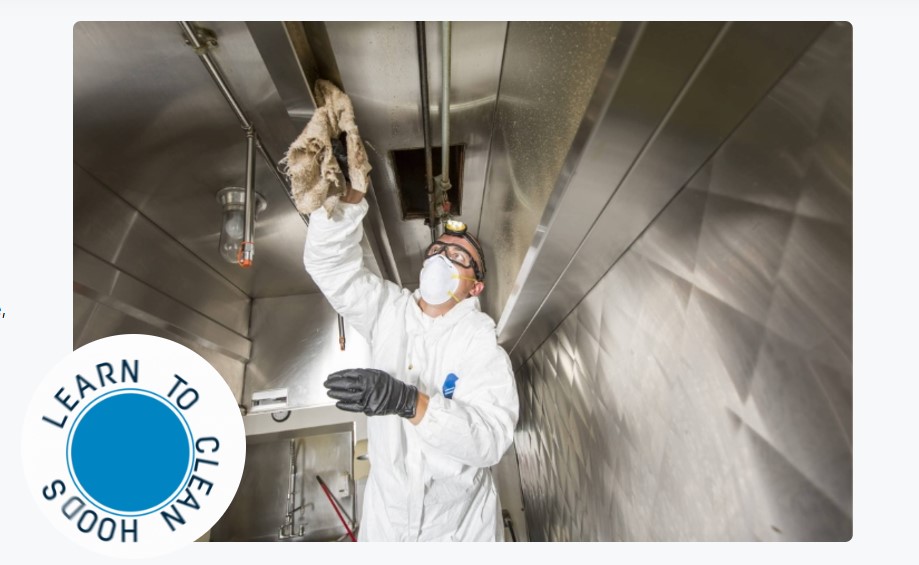In the food service industry, maintaining a clean and safe kitchen is paramount. One of the most critical areas that require attention is the kitchen exhaust system. If not properly maintained, these systems can become significant fire hazards. Therefore, investing in a hood cleaning certification program is not just beneficial—it’s essential for those looking to build a successful career in this field.
A hood cleaning certification program provides individuals with the knowledge and skills to perform thorough cleaning of kitchen exhaust systems.
The Significance of Hood Cleaning
The kitchen exhaust system plays a vital role in any commercial kitchen. It works to remove smoke, grease, and heat generated during cooking. Over time, however, grease accumulates in the ducts and hoods, creating a fire hazard. According to the National Fire Protection Association (NFPA), approximately 60% of restaurant fires stem from grease buildup. Regular cleaning is necessary to prevent these incidents, which is where the hood cleaning certification program comes in.
Enhancing Safety and Compliance
Regular hood cleaning not only reduces the risk of fire but also ensures compliance with local health and safety regulations. Businesses that fail to maintain their kitchen exhaust systems can face fines or even closures. Therefore, having trained professionals on staff is crucial for any commercial kitchen.
Additionally, a clean kitchen environment promotes better air quality, benefiting both employees and customers. Healthier workspaces contribute to increased productivity and a positive dining experience.
What to Expect from a Hood Cleaning Certification Program
1. Comprehensive Course Structure
A hood cleaning certification program typically consists of multiple modules covering essential topics. These may include:
- Overview of kitchen exhaust systems
- Cleaning techniques and tools
- Safety procedures and regulations
- Hands-on training and practical assessments
2. In-depth understanding of Kitchen Exhaust Systems
Participants will gain a thorough understanding of the components that make up kitchen exhaust systems. This includes the types of hoods, ducts, and filters, as well as how they function together to maintain a safe cooking environment.
3. Safety Protocols
Safety is a key focus in any cleaning program. Students learn about personal protective equipment (PPE), safe handling of cleaning agents, and emergency procedures. Knowledge of safety protocols helps ensure that all cleaning tasks are performed without incident.
4. Effective Cleaning Techniques
One of the most important aspects of the program is learning effective cleaning methods. Students will learn how to dismantle and clean exhaust systems, use specialized tools and apply various cleaning agents properly.
5. Understanding Regulations
Compliance with local, state, and federal regulations is critical in the food service industry. The program will cover relevant laws and guidelines, ensuring that participants understand how to document their work to meet these requirements.
6. Hands-On Experience
Most programs include hands-on training, allowing participants to practice what they’ve learned in real-world scenarios. This practical experience is invaluable, as it builds confidence and competence.
7. Certification and Career Opportunities
Upon successful completion of the program, participants receive a certification. This credential enhances employability, as many employers prefer hiring certified professionals to ensure compliance and safety in their operations.
Benefits of Completing a Certification Program
Enrolling in a hood cleaning certification program offers several advantages that can significantly impact your career:
1. Increased Job Opportunities
A certification makes you a more attractive candidate to potential employers. With many businesses requiring certified professionals, your chances of securing a job improve significantly.
2. Higher Earning Potential
Certified individuals often command higher salaries than their non-certified counterparts. The investment in your training can pay off quickly through increased earnings.
3. Expanded Skill Set
The knowledge gained from the program equips you with essential skills needed for the job. You will be able to perform your tasks more efficiently, contributing to a safer kitchen environment.
4. Networking Opportunities
Participating in a certification program connects you with industry professionals and fellow students. Networking can lead to job opportunities, mentorship, and valuable industry insights.
5. Career Advancement
Certification opens doors for advancement within your organization. You may qualify for supervisory or managerial roles, which often come with increased responsibility and pay.
Real-World Applications of Certification
Upon completing a hood cleaning certification program, graduates can pursue various career paths. Opportunities exist in restaurants, hotels, hospitals, and schools, where kitchen exhaust systems require regular maintenance.
Furthermore, with the right marketing strategy, you can establish your own cleaning business. Offering your services to local restaurants and catering companies can provide a steady income and an opportunity for growth.
Conclusion
In conclusion, a hood cleaning certification program is essential for anyone looking to excel in the kitchen maintenance field. This training provides the knowledge, skills, and certification needed to ensure safety and compliance in commercial kitchens. With the growing demand for certified professionals, investing in this program is a smart move for your career. By prioritizing training, you contribute to safer and cleaner kitchen environments while enhancing your professional prospects.
Take charge of your career in the food service industry. Enroll in a hood cleaning certification program today and pave your way to success!
